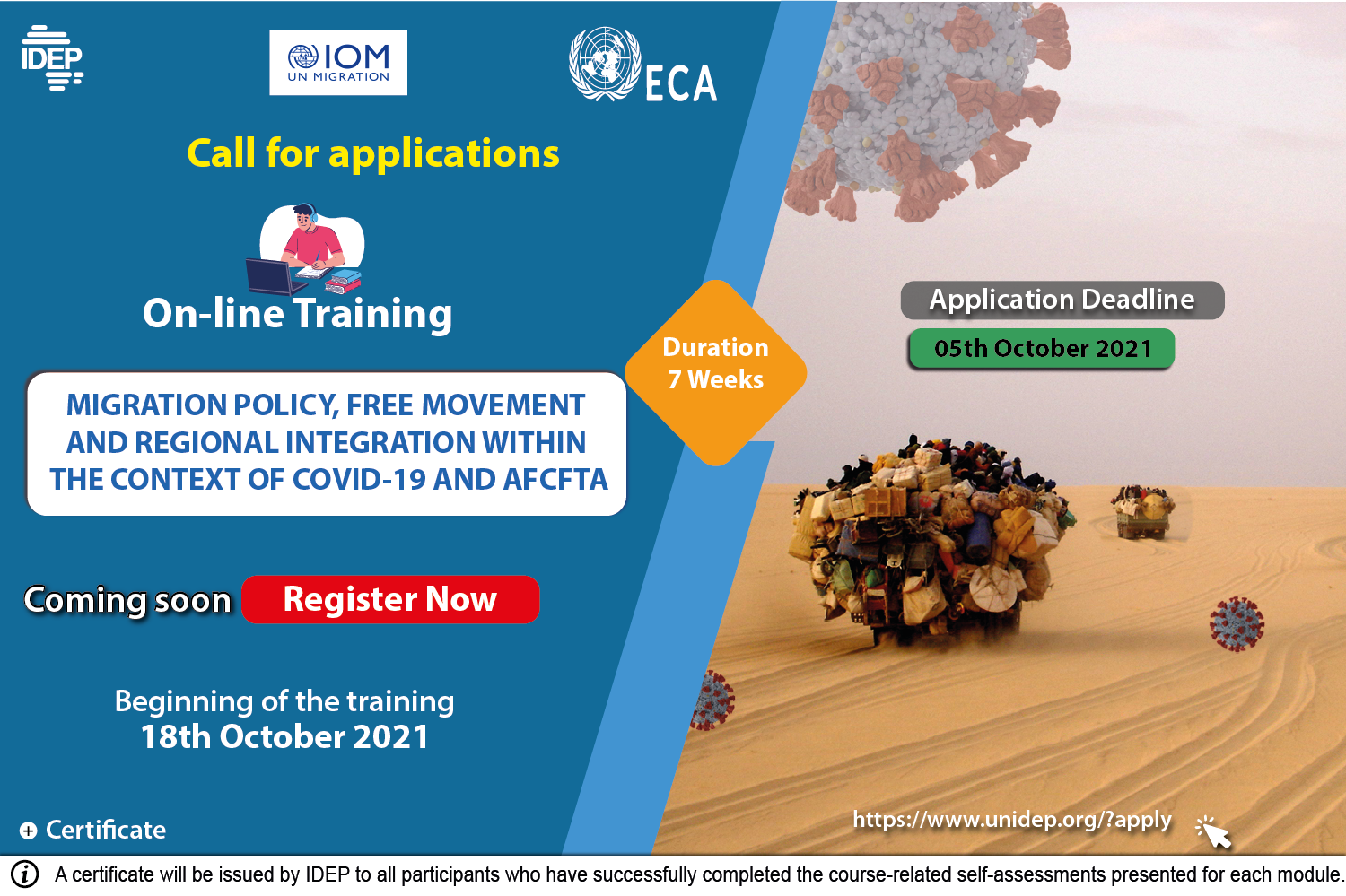Migration Policy, Free Movement and Regional Integration within the Context of COVID-19 and AFCFTA
PROGRAM RATIONALE
Indeed, the number of international migrants has continued to grow rapidly in recent years more than any time in history, reaching 272 million in 2019, including 26 million Africans, compared with 220
million in 2010 and 173 million in 2000 .
Migration is also at the forefront of major international agendas. The 2030 Agenda on Sustainable Development Goals (SDGs), which have pledged to leave no one behind, recognizes that international
migration is of paramount importance for the development of countries of origin, transit and destination. In this agenda, governments are committed to "facilitating orderly, safe, regular and responsible migration and mobility of people, including through the implementation of planned and
well-managed migration policies" (SDG Target 10.7).
Moreover, under Agenda 2063, African countries have adopted a common position of the African Union (AU) on the Global Compact for orderly, safe and regular migration, which implements the
vision of both agendas on migration.
LEARNING OBJECTIVES
The course aims to guide middle and senior level policymakers in Regional Economic Communities (RECs); Public Policymakers from National Governments; Stakeholders representing National and Regional Civil Society Organisations on the formulation of national and regional migration policies that will enhance regional integration and actively contribute to the implementation of countries' development strategies and international agreements in the area of migration.
It will provide policymakers and private sector officials with the required knowledge and the appropriate tools to develop migration policies at the intra-regional and inter-regional levels.
The course will also introduce the participants to the possible institutional architecture that can enable a better contribution of migrants to the economic development of destination and origin countries and which should be defined in consultation with the different national stakeholders.
the Global Compact for Migration (GCM) guiding principles, objectives and actions will be presented to the participants by members of the UN Network on Migration.
The African Union’s Migration Policy Framework and its objectives will be presented to participants who will be invited to consider the ways in which this framework could be adapted at the level of the
Regional Economic Communities.
At the end of the capacity building program, it is expected that participants will have acquired the following skills:
• Profound understanding of the state of play of international (Global Compact on Migration) and regional migration policy (African Union Migration Policy Framework);
• Ability to use migration policy as an instrument for the achievement of regional integration objectives;
• Better understanding of how national and regional legislations and institutions could be reformed in a way that enables a better contribution of migrants to the socio-economic development of origin and destination countries;
• Ability to contribute to the development, formulation and design of effective migration policies;
• Better understanding of the vision and key components of migration management and governance, and the link with sustainable development.
• Better understanding of the Impact of COVID-19 on Migration and Remittances
• Understanding of the African Union Protocol on Free-Movement of persons and how it can benefit Africans within the context of the AfCFTA
• Understanding of the causes and consequences of Climate Induced Displacement and Migration
